Where the Moon Isn't
by Nathan Filer
Equal parts family drama, mystery, coming-of-age and meditation on mental illness, Nathan Filer's unusual and haunting novel, Where the Moon Isn't, defies easy categorization. Whereas many genre-bending novels tend to overreach, this one succeeds on every level, most notably with its affecting protagonist. Some authors take their time revealing the unreliable natures of their narrators, but Filer cues us in very early on that Matthew Homes may not be the most expert of witnesses. "I'll tell you what happened because it will be a good way to introduce my brother," Matthew says, "His name's Simon. I think you'll like him. I really do. But in a couple of pages he'll be dead. And he was never the same after that." Everything about this admission—from its tone to its content—implies that this point of view is not to be trusted. Yet as Matthew reveals himself through letters, documents, memories, observations of others and even his drawings, it becomes clear that he is one of the most honest protagonists you will ever meet. Matthew's reality is fractured and often very difficult to navigate but because it is presented so truthfully and intelligently, it is one we are able to understand.
What happened to Simon—and Matthew's confession of his part in it—is at the heart of this layered story, but Matthew tells it his way, in pieces and fleeting snatches of memory that are often interrupted by the intrusive present. Nineteen years old, Matthew lives in a small flat in Bristol, England, and seems, at first, to be more or less typical. He relishes his independence, has a distaste for being told what to do by authority figures, and craves connection with other people. He also grieves the loss of his brother, who had Down Syndrome and died when they were both children. But all of this is only the surface of Matthew's existence. He suffers from an unspecified mental illness that is gradually revealed. He has hallucinations, alternating periods of mania and depression, and a tendency not to take his medication or follow the outpatient treatment program designed for him by "the team" at Hope Road Day Centre. The interruptions he experiences as he attempts to tell his story are often in the form of case workers, mental health nurses (Filer is himself a mental health nurse) or well-meaning relatives who attempt to reel him back in when he doesn't show up for group therapy or fills his flat with mounds of dirt. Nor is Matthew's grief simple; it is mixed with guilt, as he believes he is responsible for his brother's death.
The details of Simon's death are difficult for Matthew to reveal all at once, so he begins the story of what happened that dark, wet summer night when the two of them snuck out of the house by describing the events and people around it. There is Matthew's mother, devoted and caring but crippled by her own anxiety and depression; his father, a gentle man who refers to Matthew as "mon ami" and who struggles with his inability to put the impossible to rights; and Matthew's beloved grandmother Nanny Noo, whose unspoken understanding of Matthew serves to stabilize him. And, of course, there is Simon—sweet, funny and, as Matthew describes him, heroic in his cheerful acceptance of the burdens he has to bear. Simon is still exceptionally vivid in Matthew's mind a decade after his death because he appears regularly in the form of hallucinations that speak to Matthew. The way Filer describes this—Simon appears in the flame of birthday candles and climbs out from under the bed—is nothing short of brilliant. When Matthew talks about being visited by Simon in this way—especially when he alternates these descriptions with his memories of Simon—it makes sense to us in exactly the same way it does to Matthew. Though unnerving, this unique window into a mental illness that is so often misunderstood and misrepresented is both interesting and enlightening. And despite his turmoil (Matthew's subtle but sharp descriptions of slowly being claimed by his illness as he grew older are heartbreaking), which periodically erupts in violence, Matthew is great company. Smart, funny and compassionate, he makes us believe, if only for a moment, that it is possible to conjure a loved one simply through the energy of longing and memory.
Beyond the merits of his story, Nathan Filer offers readers a great deal of insight into both mental illness and the limitations of current treatment options. When Matthew's illness lands him—again—as an inpatient on a psychiatric ward it becomes evident how bureaucracy, budget cuts and simple ignorance can cripple efforts to help those suffering from mental illness. But Where the Moon Isn't is ultimately a very hopeful novel. Though, as with every aspect of the novel, the ending is atypical, it is, in its way, both happy and healing. —Debra Ginsberg



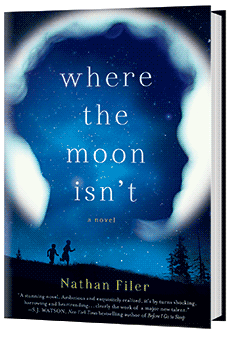
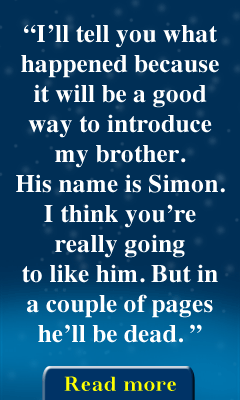
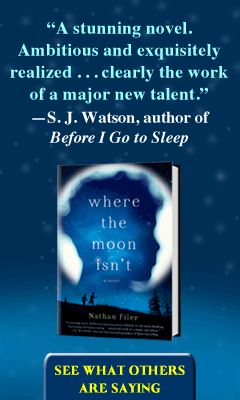
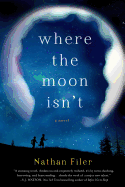
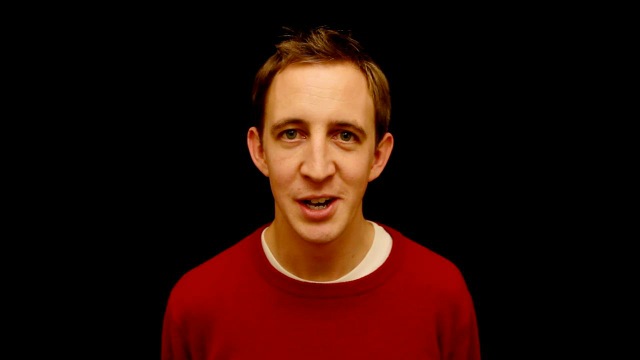
 Memory, and its notoriously misleading and unreliable nature, is a strong theme throughout the novel. For Matthew, in fact, memory almost seems a form of madness. How did this theme develop for you?
Memory, and its notoriously misleading and unreliable nature, is a strong theme throughout the novel. For Matthew, in fact, memory almost seems a form of madness. How did this theme develop for you? Matthew is an incredibly complex character and you portray him with such nuance and depth. Did you find it difficult to inhabit this character over the course of the novel?
Matthew is an incredibly complex character and you portray him with such nuance and depth. Did you find it difficult to inhabit this character over the course of the novel?